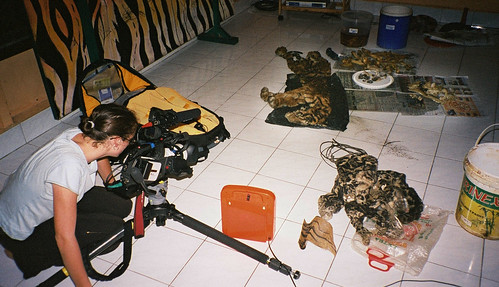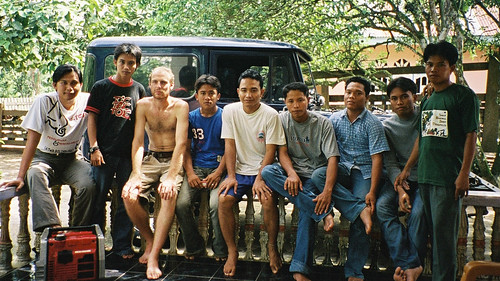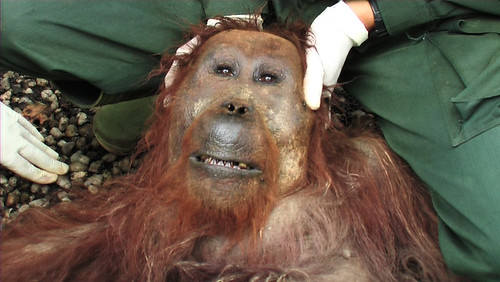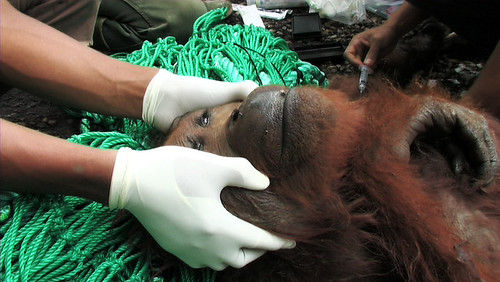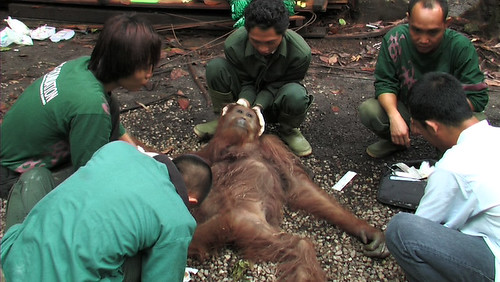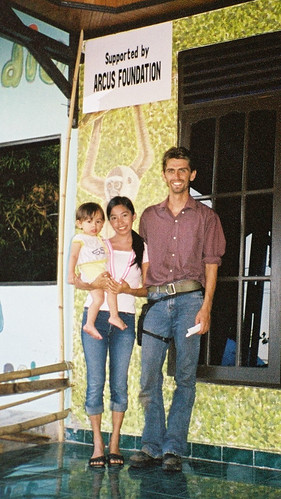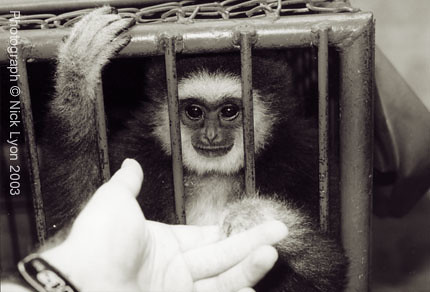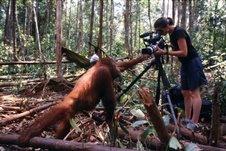Make Way Jungle - We Want Oil !!!
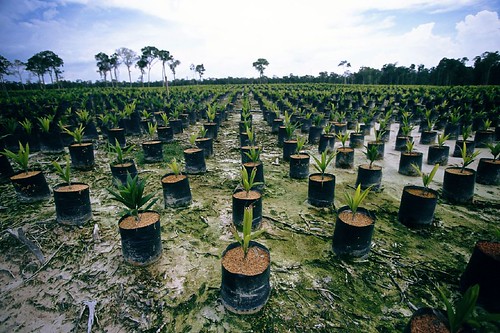 The New Forest of Indonesia - Oil Palm, Kalimantan 2005
The New Forest of Indonesia - Oil Palm, Kalimantan 2005This is the nursery for a new oil palm plantation. In the distance you can see the forest still standing. This nursery is smack in the middle of 30,000 hectares of primary forest that has been given as a concession to a PT Oil Palm group for conversion into an Oil Palm plantation.
This means that by the end of the year this land will have been logged of all its valuable hard wood trees. The land will then be totally clear cut, and the topsoil turned over. Not a tree will be left standing. The whole landscape will be empty. Then the palm oil will be planted.
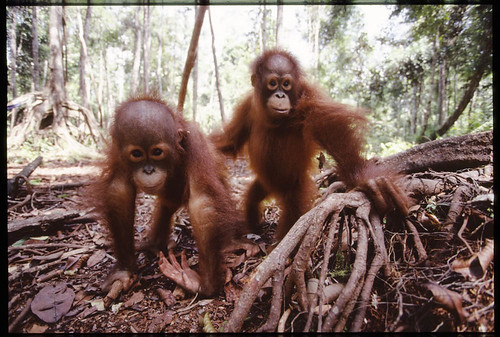 This photo is tragic, not sweet. These orangutans should be with their mothers, but their mothers are dead. They are now cared for and in the process of rehabilitation through the dedicated work of BOSF. We are concerned however that there will be nowhere to release them if things don't change now.
This photo is tragic, not sweet. These orangutans should be with their mothers, but their mothers are dead. They are now cared for and in the process of rehabilitation through the dedicated work of BOSF. We are concerned however that there will be nowhere to release them if things don't change now.The Borneo Orangutan Survival Foundation rescue orangutans from the plantations in this area. They estimate that around 600 orangutans inhabit this area, earmarked for imminent conversion. The fragments of natural forest left are saturated - i.e. they have reached their carrying capacity for orangutans. Orangutans need large home ranges for their survival. Many of the animals living in this area will undoubtably die. Many more are likely to enter a life of misery in the illegal pet trade.
Driving through the rough jungle track on the back of a tractor we are surrounded by the doomed forest. I smell the sickly sweet smell of fermenting fruit. I look over to Melky from the rescue team: he nods - it is the smell of orangutan. It is right there in the trees nearby, or had been very recently. A rusa deer crosses our path and maroon leaf monkeys move in the trees. All this is about to be lost.
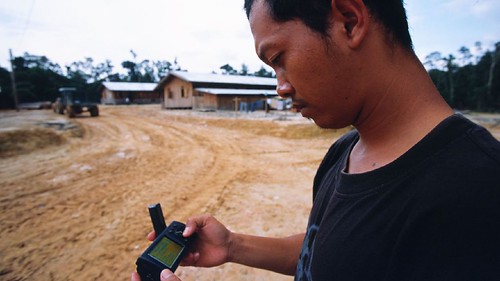 Eko, BOSF paramedic, logs a future rescue location
Eko, BOSF paramedic, logs a future rescue locationThe situation is incredibly sad. Eko, a BOSF paramedic logs the position of the camp in his GPS system. He knows he will be returning in the months to come to rescue orangutans. But where will they go? Habitat is dissappearing too fast now. We are told at the rescue centre that they are reaching maximum capacity - too many orangutans are coming in. Their forest home needs to be protected right now.
The situation is simply crazy. It is not that land is at a premium for development. There are vast areas of land standing empty in Kalimantan. Huge expanses of grasslands that were once forest. No crops have been planted here, but still, the little primary forest left standing is at risk of conversion to oil palm. The simple reason for this is the value of the hardwoods these forests contain. It is a one time windfall, it is not sustainable, and it is a tragedy. Orangutans are not the only animals to suffer. We have chosen just one species as an example, a flagship, one of our closest cousins, and one with an uncertain future.
Things are not hopeless, but we need to make things change. Help us get this message heard.
